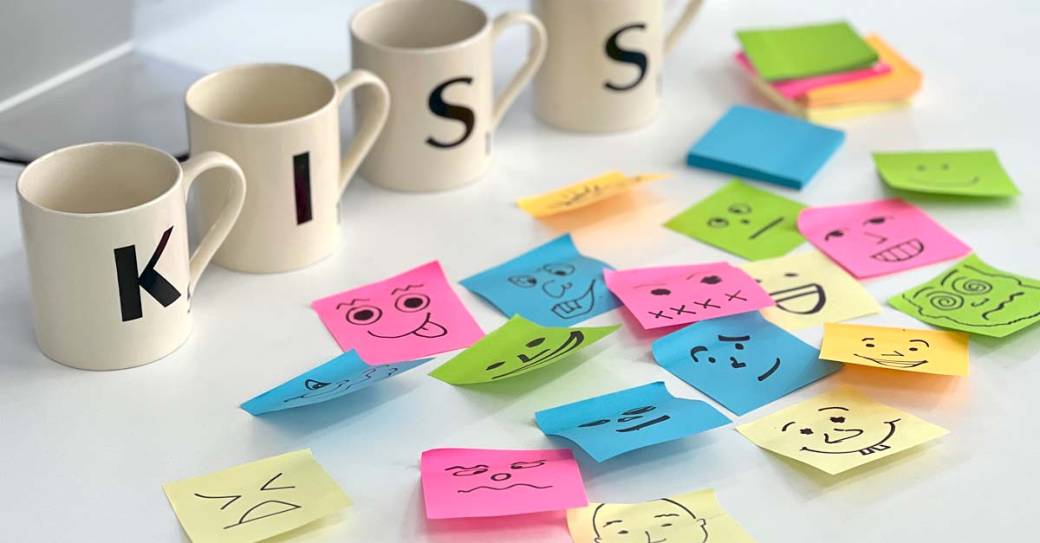Personality testing in the workplace: gimmick or gamechanger?
11 April, 2023 Reading: 4:14 mins
ABC to ENTP… WTF?

“We’re going to be doing personality tests in our session next week!”
This has to be one of the most divisive things you can say to your colleagues, potentially more so than whether the office is too hot or too cold. Why have personality tests become so popular, why do people like/dislike discussing them at work so strongly, and how can you actually get the most from using them in the workplace?
Of course there’s lots of info out there about the pros and cons of using them in the workplace, but when a McKinsey study reveals that 97% of executives believe poor alignment between team members impacts a project's outcome, then there's an argument for them having some tangible value.
Although most commonly used in the recruitment process, they can prove incredibly effective in selecting the best working environments and team structures. When we recently held our own session here at KISS, we found the whole thing fascinating, and it helped us to see how best to work with each other. We ironed out a few misconceptions to understand that not everyone thinks and works in the same way, and that’s OK! Once you understand natural strengths it’s helpful for team dynamics – clearly there’s no perfect way to build the perfect team, but personality tests offer a structure to encourage thinking about workplace compatibility. A reminder though, that they’re not the only way to approach it so do make sure you’re teams know that!
According to the Harvard Business Review, personality tests can help balance a team, “You can put world-class talent together on a team, and it may still fail to perform as a cohesive unit. In fact, the only way to create a team that’s worth more than the sum of its individual contributors is to select members on the basis of personality, soft skills, and values.”
It's vital to understand that some people may be reluctant to participate – many don’t always like being categorised, and might feel like they’re being pigeonholed, or exposed. If this is how they react it’s possibly because they don’t trust that the outcome is worth going on the journey. So, it’s important to communicate it as being a helpful conversation starter, rather than a set of rules or a bible for ‘how to work’. More of a starting point but certainly not the only conversation you’ll have about the best ways to work together – but a great way to build empathy across teams.
Key to the process is emphasising that personality tests are merely informative guides and that there’s no one size fits all. That means even the most popular, tried-and-tested personality tests might not be a good fit for some people or capture the essence of the best way of working with them. There’s nothing worse than feeling like the odd one out, so pay attention to people who aren’t enjoying the session or strike up a conversation with someone who switched off during the session, to work out what it was that turned them off – that’s often more valuable than anyone who engages wholeheartedly with the methodology anyway.
The specifics of the session or the tests are less important than listening and learning from colleagues and using any new knowledge to change ways of working together to bring the best out in each individual.
But how might that look in action? Here are some tangible examples for the naysayers:
- I know my colleague is very extroverted, so when she’s worked from home a couple of days in a row - I make sure to schedule in some check ins. Likewise, she knows if I’ve been in the office multiple days in a row, by the end of those days I’ll be flagging. This way we don’t expect optimum performance when someone has been in sub-optimal conditions.
- I know I’m an emotion sponge. I’ll support colleagues through their stressful times, but then make sure I take a moment to check in with myself that I’m not carrying their emotions beyond my conversations with them. In practise that might be a quick walk after a tricky conversation, or getting stuck into a task you enjoy, that makes you feel competent.
- If you know your personality means you often react with your heart, then you need to wait for your head to catch up. That might mean if you pen an email in the midst of emotion - whether stress, anger, or even overexcitement - you remember to give yourself some time to check it makes sense logically after a pause (as simple as leaving the email in drafts for ten minutes).
So, our take from the session we held, is that personality tests can prove insightful in helping to build trust in teams, learning how to work with team members and, most importantly they can help towards improving company culture and trust.